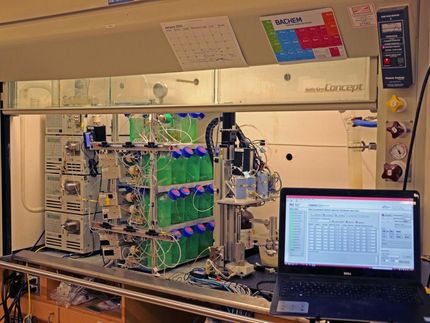‘Stapled’ protein could lead to new cancer treatments
A new type of lab-created protein could help create valuable new treatments
Advertisement
In a new paper researchers from the Universities of Glasgow, Leicester, Leeds and Tsukuba (Japan) discuss how they have built a ‘better’ protein which could lead to a biological drug to treat cancer.
The researchers have designed and built a proteomimetic version of a naturally-occurring protein called TPX2. Proteomimetics are synthetic proteins that mimic the structure and interacting surfaces of natural proteins, allowing them to slip past the body’s defences and deliver a therapeutic effect for patients.
Although their proteomimetic TPX2 has the same interacting surfaces as the natural protein, it has been designed to have a higher affinity within the body. Through a process known as ‘stapling’, TPX2 is altered to make it more resilient and likely to ‘stick’ to and interact with another protein called Aurora-A.
Targeting Aurora-A has been proposed as a potentially useful strategy for cancer treatment.
Dr Andrew Jamieson, Senior Lecturer in chemical biology at the University of Glasgow, said: “If you think of the naturally occurring protein as a basic model of a car, the proteomimetic version we’ve created is like a kit car version of the same vehicle but is more robust and faster.
“Stapling the TPX2 protein may make it more rigid and less easily broken down by the body, so it has a greater chance to disrupt naturally-occurring protein-to-protein interactions and provide longer lasting benefit to patients.
“Now that we’ve built the proteomimetic TPX2, we’re keen to take our research further and explore in more detail how it can be used effectively in the future. It’s one step closer to using custom-designed proteins as biological drugs, which could deliver a huge range of medical benefits in coming decades.”



























































